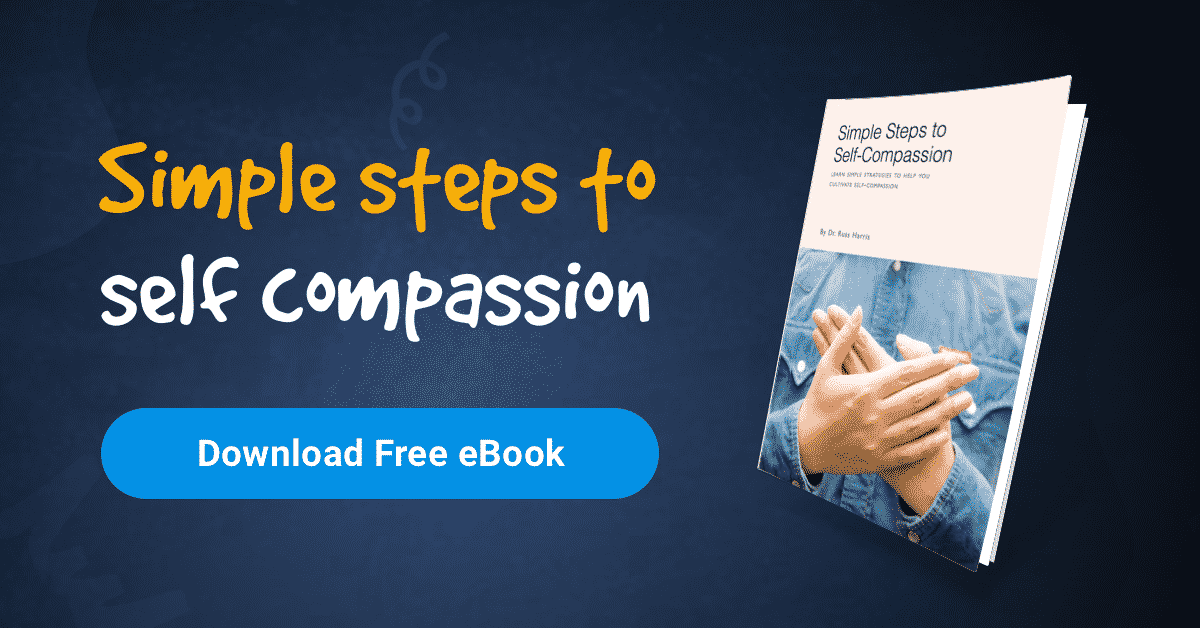Imagine you’re going through a rough patch, one of the toughest ordeals you’ve ever had to cope with in life. You’re facing all sorts of challenges, obstacles, difficulties. It’s painful and stressful, and there’s no quick fix or easy solution. Now, as you go through this, what kind of companion would you like by your side?
The kind of companion who says, with a cold, uncaring voice, “Suck it up, princess. I don’t want to hear your whingeing and whining. What have you got to complain about? There are starving kids in Africa, this is trivial.
What’s wrong with you? Why are you so weak? Just shut up and get on with it.”? Or the kind of companion who says, with a kind and caring voice, “This is really tough. And I want you to know, I’ve got your back. I’m going to help you get through this. I’m with you every step of the way.”?
It’s a no-brainer, right? All of us – even super tough men and women who work in the armed forces and emergency services – would choose the second companion over the first. What this second companion demonstrates is a quality called “compassion” – which means ‘acknowledging the suffering of others and responding with kindness and caring’.
Sadly, the truth is, most of us are a lot better at being compassionate to others, than we are to ourselves. When we are in pain, we often treat ourselves a lot more like the first companion than the second. Self-compassion means learning to treat ourselves like the second companion: acknowledging our own suffering and responding to ourselves with kindness and caring.
In other words, self-compassion means treating ourselves with the same warmth, caring and kindness that we’d extend to someone we love or deeply care about, if they were in similar pain.
For thousands of years, self-compassion has played a central role in many religious and spiritual practices, and now it is becoming increasingly important in many science-based models of therapy, coaching and counselling.
Certainly, it is implicit in every aspect of the evidence-based Acceptance & Commitment Therapy model, upon which The Happiness Trap Online Program is based.
A wealth of research shows the many benefits of self-compassion with everything from depression and anxiety disorders to grief, trauma and addiction, to dealing with stress and pressure in the workplace.
Self-compassion helps you to cope better with stress, anxiety and pressure, to bounce back from failures and setbacks, to cope better with grief and loss, and to handle any type of emotional or physical pain more effectively.
So it’s well worth knowing how to develop it in yourself. And if you’re worried that it’s going to involve meditation or a religious practice of some sort, rest assured: it doesn’t.
Although there are all sorts of mediative and religious practices that can be used to develop self-compassion, there are also many other ways that are arguably a lot simpler.
There are two basic steps to self-compassion:
- Acknowledge your own suffering.
- Respond to yourself with kindness and caring.
The easiest place to begin is with a simple thought experiment. If you wanted to be compassionate to someone you love, who comes to you in great pain, tells you how much they are suffering – what are some kind words you might say to them?
What are some kind things you might do for them? Whatever your answers are to those questions, apply them to yourself. Try saying the same kind words to yourself, and doing the same kind things for yourself, that you’d do for someone you love.
Of course, there’s much more to self-compassion than this, and I’ll be exploring other aspects in future blogs. But this is a good place to start. So next time you’re suffering, acknowledge it, and respond with kindness. This doesn’t come naturally to most of us – but it’s a skill that’s well worth making the effort to develop.




